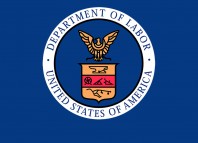Community HealthChoices RFP Response
Dear Colleagues:
We are excited to announce that we have received 14 responses to the recent request for proposal (RFP) issued for Community Health Choices (CHC). This vital program will allow the departments of Human Services and Aging to serve more Pennsylvanians in their communities and allow consumers to have an active voice in the services they receive.
Final Rule on Fire Safety Requirements for Health Care Facilities
The Centers for Medicare and Medicaid Services (CMS) released a final rule in the May 4, 2016 Federal Register that updates health care facilities’ fire protection guidelines to improve protections from fire for Medicare beneficiaries in facilities.
The new guidelines apply to hospitals; long-term care (LTC) facilities; critical access hospitals; inpatient hospice facilities; programs for all-inclusive care for the elderly; religious non-medical health care institutions; ambulatory surgical centers (ASCs); and intermediate care facilities for individuals with intellectual disabilities (ICF-IID). This rule adopts updated provisions of the National Fire Protection Association’s (NFPA) 2012 edition of the Life Safety Code, as well as provisions of the NFPA’s 2012 edition of the Health Care Facilities Code.
Some of the main provisions in the final rule include:
- Health care facilities located in buildings that are taller than 75 feet are required to install automatic sprinkler systems within twelve years after the rule’s effective date;
- Health care facilities are required to have a fire watch or building evacuation if their sprinkler system is out of service for more than ten hours;
- The provisions offer LTC facilities greater flexibility in what they can place in corridors;
- Fireplaces will be permitted in smoke compartments without a one hour fire wall rating;
- Cooking facilities now may have an opening to the hallway corridor;
- For ASCs, all doors to hazardous areas must be self-closing or must close automatically; and
- Expanded sprinkler requirements for ICF-IIDs.
Health care providers affected by this rule must comply with all regulations within 60 days of the May 4, 2016 publication date, unless otherwise specified in the final rule.
DHS Releases Proposed Community HealthChoices Waiver
The Department of Human Services (DHS) has made available for public review and comment the proposed Community HealthChoices (CHC) 1915(b) waiver and the proposed CHC 1915(c) waiver amendments, as published in the April 23, 2016 Pennsylvania Bulletin. If approved, the waiver will govern the operation of the CHC program, Pennsylvania’s managed long-term services and supports initiative.
Available for review on the DHS website are the proposed CHC concurrent 1915(b) and (c) waiver application and a detailed summary of all provisions, including a list of long-term services and supports which will be covered under the 1915 (c) waiver, and a summary of the person-centered planning requirements, participant fair hearing rights and grievance and complaint procedures, participant safeguards, quality management processes, payment methodologies, and cost effectiveness demonstration.
The Office of Long-Term Living will offer two CHC Waiver webinars in May for public input and discussion:
- Thursday, May 12, 2016 at 2:00 pm
- Wednesday, May 18, 2016 at 10:00 am
The public comment period ends Monday, May 23, 2016. Comments received within the 30-day comment period will be reviewed and considered for revisions to the applications.
CMS Releases Proposed FY 2017 IRF Payment Rule
On April 21, 2016, the Centers for Medicare and Medicaid Services (CMS) released the fiscal year (FY) 2017 inpatient rehabilitation facility prospective payment system (IRF PPS) proposed rule. The proposed rule will publish in the April 25 Federal Register. Some of the key provisions proposed include:
Proposed Updates to IRF payment rates:
Updates to the payment rates under the IRF PPS. CMS is proposing to update the IRF PPS payments to reflect an estimated 1.45 percent increase factor (reflecting an IRF-specific market basket estimate of 2.7 percent, reduced by a 0.5 percentage point multi-factor productivity adjustment and a 0.75 percentage point reduction required by law). CMS is proposing that if more recent data becomes available (for example, a more recent estimate of the market basket or multifactor productivity adjustment), it would be used to determine the FY 2017 update in the final rule. An additional 0.2 percent increase to aggregate payments due to updating the outlier threshold results in an overall update of 1.6 percent (or $125 million), relative to payments in FY 2016.
No changes to the facility-level adjustments. For FY 2017, CMS will continue to maintain the facility-level adjustment factors at current levels. CMS will continue to monitor the most current IRF claims data available to assess the effects of the FY 2014 changes.
Proposed Changes to the IRF Quality Reporting Program (QRP):
Beginning in FY 2014, any IRF that does not submit the required data to CMS receives a 2.0 percentage point decrease in its annual increase factor for payments under the IRF PPS. The Improving Medicare Post-Acute Care Transformation (IMPACT) Act of 2014 requires the continued specification of quality measures, as well as resource use and other measures, for the IRF QRP.
In order to satisfy the requirements of the IMPACT Act, CMS is proposing four claims-based measures for inclusion in the IRF QRP for the FY 2020 and FY 2018 payment determination and subsequent years and one new assessment-based quality measure for inclusion in the IRF QRP for FY 2020 and subsequent years, respectively:
- Discharge to Community – Post Acute Care (PAC) IRF QRP (claims-based);
- Medicare Spending Per Beneficiary (MSPB) – Post-Acute Care (PAC) IRF QRP (claims-based);
- Potentially Preventable 30 Day Post-Discharge Readmission Measure for IRFs (claims-based);
- Potentially Preventable Within Stay Readmission Measure for IRFs (claims-based); and
- Drug Regimen Review Conducted with Follow-up for Identified Issues (assessment-based).
Pending final data analysis, CMS is also proposing to add four new measures to IRF QRP public reporting on a CMS website, such as Hospital Compare, by fall 2017. In addition, CMS is proposing to extend the timeline for submission of exception and extension requests for extraordinary circumstances from 30 days to 90 days from the date of the qualifying event.
CMS Hospital/Quality Initiative Open Door Forum
The Centers for Medicare and Medicaid Services (CMS) has scheduled the next hospital/quality initiative open door forum (ODF) for Tuesday, April 19, 2016 at 2:00 pm. Two of the agenda topics that will be addressed include the upcoming Improving Medicare Post-Acute Transformation (IMPACT) Act stakeholder engagement activities and the self-identified overpayment final rule.
To participate in the ODF, call 1-800-837-1935 and reference conference ID: 39978935. An encore recording of the call will be available beginning two hours after the call has ended and will expire after two business days. To listen to the encore recording, call 1-855-859-2056 and reference conference ID: 39978935.
Q&A Addendum Added to Community HealthChoices RFP
A Question and Response Addendum has been added to the PA e-Marketplace website, for the request for proposals (RFP) for managed care organizations that will be submitting their proposals and responses for the Community HealthChoices program. The addendum is located under “Flyers/Addendums” on the web page. The 81-page addendum includes the RFP section, questions, and answers to each question posed.
Amendments to Aging, Attendance Care, & Independence Waivers
The Department of Human Services (DHS) Office of Long-Term Living (OLTL) will be submitting amendments to the Aging, Attendant Care, and Independence waivers. The public notice announcing the amendments will appear in the April 2, 2016 Pennsylvania Bulletin.
To view a side-by-side comparison of the current and revised language, and to access the amendments in their entirety (including specific HCBS Allowable Settings Transition Plans and the Community HealthChoices Transition Plans for each waiver, contained in the Main Module), visit the OLTL Waiver Amendment, Renewals, and Accompanying HCBS Transition Plans website and select the individual waiver amendment you would like to review under “Related Topics.”
OLTL is seeking public comment on the Aging, Attendant Care, and Independence waiver amendments. Those interested are invited to submit written comments to the Department of Human Services, Office of Long-Term Living, Bureau of Policy and Regulatory Management, Attention: Aging Waiver, Independence Waiver, or Attendant Care Waiver, PO Box 8025, Harrisburg, PA 17105-8025. Comments can also be sent via email, using the comment form link. On this site, select the individual waiver amendment you would like to view under “Related Topics” and the comment form will be listed in the documents.
The public comment period ends on Monday, May 2, 2016. Comments received within the 30-day comment period will be reviewed and considered for revisions to the amendments.
OLTL will offer two webinars in April for public input and discussion:
Aging, Attendant Care, and Independence Waiver Changes Webinar
Wednesday, April 13, 2:00 – 3:00 pm
Aging, Attendant Care, and Independence Waiver Changes Webinar
Tuesday, April 19, 10:00 – 11:00 am
PROMISe Enrollment Now Online
The Department of Human Services (DHS) Medical Assistance Online Provider Enrollment Application information is now electronic, online, and available to provider organizations. The improvements and modernization of the PROMISe system have been strongly encouraged by RCPA and a significant goal of DHS. Some of the benefits of online enrollment application submissions are:
- Allowing documents that previously had to be mailed or faxed to be uploaded directly to the portal;
- Permitting providers see the status of their submissions; and
- Decreasing wait time to review applications.
The information you will need to submit an application for enrollment:
- Access the online enrollment application
- Review the training guide
- Review the frequently asked questions document for important clarifications
- A “Help” feature is available at any time during the completion of an application
- Supplemental Services require the Behavioral Health Managed Care Organization to attest that a provider is credentialed
OMHA to Include Part A Claims in Settlement Conference Facilitation Pilot
In late February, the Office of Medicare Hearings and Appeals (OMHA) announced an expansion (Phase III) of its Settlement Conference Facilitation pilot to include Medicare Part A claims, which includes claims under dispute from Inpatient Rehabilitation Facilities. This announcement was part of an Appellant Forum hosted by OMHA. The agenda and slide presentation from the forum provide additional information.
OMHA is the entity that is responsible for administering the Administrative Law Judge (ALJ) level of the Medicare appeals process. This expansion, which became effective on February 25, 2016, is an effort to help resolve the extensive backlog of ALJ hearing requests, which is approximately at 240,000 for FY 2015. The previous phases of expansion were limited to Part B claims and have been in effect since June of 2014. To date, only a small amount of claims have been removed from the queue.

















